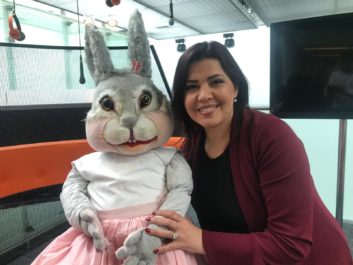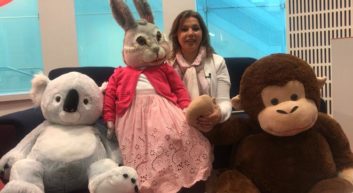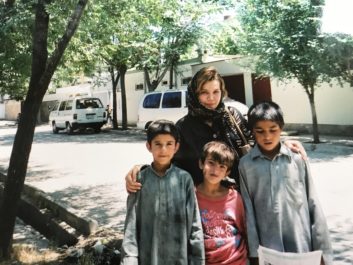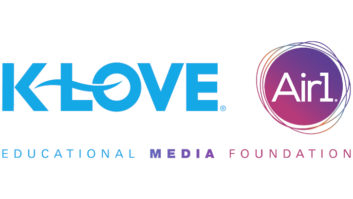The author is BBC journalist and writer.
LONDON — “I am so happy that my childhood favorite, the young radio presenter, has grown up, and her daughter is now presenting a TV program,” said a fan in a Facebook message to me. He was talking about the rabbit, Warakai, with whom I am now co-presenting the BBC News Pashto children’s bedtime stories TV program, “Lallo Lallo” (Lullaby). Warakai is the daughter of Kharakai, the talking rabbit on the BBC radio who, during the brutal war of the 1990s, stole the hearts of Afghans. If I can say so, I knew her very well.

CIVIL WAR
In the early 1990s, when civil war was raging in Afghanistan, I wrote and presented a children’s radio program, which the BBC broadcast from London. Knowing how little content was available for Afghan children, I was trying to give them some moments of sparkle and happiness so they could forget, even if temporarily, the bombs, the hunger, the fear, and perhaps lose themselves in a place where good prevailed over evil, where darkness always gave way to sunshine. This place was the children’s story slot on Wednesdays on BBC Pashto radio, transmitted on medium wave and shortwave in Afghanistan as well as in the “Pashtun belt” in Pakistan’s northwest.

Most of the time, my daughter was my first listener. She would give me the most direct and honest feedback you can wish for as a writer. If she liked the story, I would see it in her eyes. I would be telling her about the ant beating the drum, and she would be give me a wide smile and do a drumming gesture. If my narrative confused or disappointed her, her face would immediately show it, she would frown and ask, “Why?” or “Is that it?” That’s when I would know that there was a need for a rewrite.
Watching my daughter’s response, I also could see how children’s imagination works as they picture characters in their heads. One evening I was telling her the story of a village where love was gone and people were angry with each other. No one was giving treats to the fairies in the trees, no one was visiting them, so the fairies decided to pack up and leave the loveless village. My daughter’s immediate reaction was: “Do the fairies have suitcases? What are their dresses made of?” As they tuned in to hear that tale, the audience was informed that the fairies’ dresses were made out of rose petals, their sandals — of green shiny leaves, and that they packed their garments in walnut shells.
To help me tell those tales, I soon summoned Kharakai, my grey rabbit co-presenter. Like me, Kharakai was safe from destruction yet held tight the love for her mountainous native land. Kharakai was fun. She helped me explain some particularly tough and tricky parts of the story, asking questions exactly as a child would do. She often took over the narrative with her own interpretation.
Afghans fell in love with my co-presenter. The amount of letters, gifts, and toys we were receiving for her was unprecedented. And they were not all from children. At the end of my journalist colleague’s very serious interview in Afghanistan with an authoritative interlocutor, the bearded commander took him aside and, suddenly smiling, quietly asked who was behind the voice of the rabbit on the BBC radio show…
[In-Car Updates From Radioplayer, BBC Sounds]
BBC World Service started broadcasting in Pashto on Aug. 15, 1981, at the height of the Cold War, in the aftermath of the Soviet invasion of Afghanistan. As information in the country was under strict government control, the BBC’s radio broadcasts in Pashto became staple listening for millions in Afghanistan and Pashtun-speaking areas of Pakistan. Mullahs were asked to adjust the evening prayer times to allow people to tune in to the BBC.
CRUCIAL INFORMATION
From mid-1990s, the weekly radio soap opera “New Home New Life” in Pashto as well as Dari (produced by the BBC’s international charity BBC World Service Trust — now BBC Media Action) started to raise issues such as awareness of mines (a scourge that claimed thousands of civilian lives), immunization, or refugees’ return to their villages. Aimed at empowering women, it was also a radio drama in its own right, bringing together entire families and, where radio sets had to be shared, neighbors.

Afghan children can now watch our stories rather than just listen to them. But in a country where many areas have sporadic access to electricity — and hence to TV and social media — BBC News Pashto radio continues to be an important source of news and features. In Afghanistan — fifth largest market for BBC News outside the United Kingdom — the BBC reaches 59 percent of the population in Pashto, Dari, Uzbek and English.
BBC News Afghan service’s editor, Meena Baktash, says: “We always look for ways to deliver content tailored for a wider range of audiences, be it children, youth, parents, or women in particular — on TV and online but also on radio which continues to be a medium of choice for millions in Afghanistan.”
Afghan children are still surrounded by war. Just like in the 1990s, many are familiar with the sound of attacking gunships. They have seen explosions in a market place or a school. For many, childhood ends at the age of four when they start to work.
As our TV series talks about health, safety, education and morality, Kharakai’s daughter, Warakai adds moments of magic and colors, something every child deserves. Let’s see if her TV fan group can match that of her radio celebrity mother.







